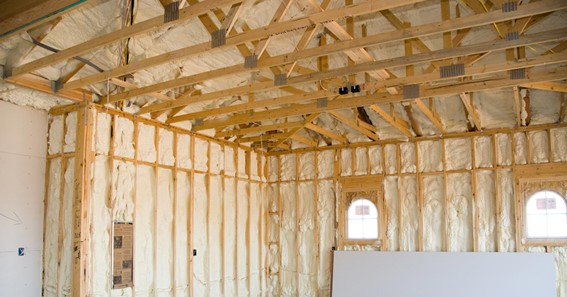Spray foam insulation is a newer type of insulation that has grown in popularity in recent years. It is made of two components-a polymers and a foaming agent. When the two are mixed, they create a foam that can be sprayed onto surfaces like walls and ceilings. The foam then expands and hardens, providing an airtight seal and insulation.
This guide will answer some of the most frequently asked questions about spray foam insulation.
1) What are the benefits of this type of insulation?
There are many benefits, including:
-It is very effective at insulating, which can result in lower energy bills
-It helps prevent moisture and air infiltration, which can lead to mold and mildew problems
-It is pest resistant, making it a good choice for areas that are prone to pests
-It is fire resistant, making it a safer option than some other types of insulation
Click here – Harsh realities about driving under influence (DUI) – Know the consequences
2) How long does foam insulation last?
It can last many years if properly installed and maintained. Therefore, it is essential to check for any signs of damage or deterioration and to have any repairs made as soon as possible.
3) How much does this kind of insulation cost?
The cost will vary depending on the project’s size and the material used. Therefore, it is essential to get quotes from several companies before deciding.
4) Is spray foam insulation safe?
Yes, it is safe when it is installed correctly. However, it is essential to follow all instructions and safety precautions when installing this type of insulation.
5) Do I need special equipment to install this insulation?
No, you do not need special equipment to install home insulation. However, having the proper safety gear, such as gloves, eye protection, and a respirator, is essential.
6) Can I install this kind of insulation myself?
You can install it with the proper instructions and safety precautions. However, it is always best to hire a professional to do the job for you.
7) What are the disadvantages of this foam insulation?
There are a few disadvantages, such as:
-It can be messier than other types of insulation during installation
-It is more expensive than some other types of insulation
-It requires specific equipment and safety gear for installation
8) Where can I use foam insulation?
It can be used on any type of surface, including:
-Walls
-Ceilings
-Floors
-Attics
-Basements
9) What are the dangers of spray insulation?
If not installed properly, it can be dangerous. Therefore, it is essential to follow all safety precautions and instructions when installing this insulation.
10) How can I find a good insulation contractor?
There are a few ways to find a good contractor, such as:
-Asking friends or family for recommendations
-Searching online for reviews
-Checking with the Better Business Bureau
11) Should I get more than one estimate?
Before choosing a contractor, you should get at least three different estimates. This will help you compare prices and find the best deal.
12) What questions should I ask a potential contractor?
When meeting with a potential contractor, be sure to ask:
-How long have they been in business
-How many projects have they completed
-What is their price for the project
-If they are licensed and insured
-If they have any references, you can contact
13) What should I do if I’m unsatisfied with the work?
If you are unsatisfied with the work, you should contact the contractor to see if they can remedy the situation. If they cannot do so, you can file a complaint with the Better Business Bureau or your state’s consumer protection agency.
Overall, spray foam insulation is a safe and effective way to insulate your home. It has many benefits, including reducing energy bills, preventing moisture and air infiltration, and being fire resistant. However, following all safety instructions when installing this insulation is essential. If you are considering hiring a professional, check reviews and get multiple quotes.
Click here – How Do Changes In Jobs Changes Spousal And Child Support?





